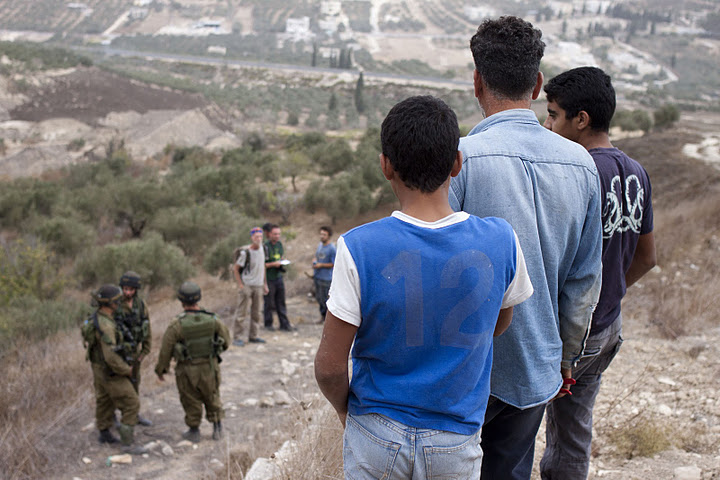Category: In the Media
-
Refusing to die in silence: Palestinians resist settler violence during the olive harvest
Ben Lorber 29 October 2011 | Mondoweiss As this year’s olive harvest sends Palestinian families across all of historic Palestine out to their olive trees, a new nonviolent resistance group called Refusing to Die In Silence is patrolling the West Bank, protecting harvesters from increased settler violence. The 2011 olive harvest, which began in early…
-
Harvesting olives as a statement of resistance
by Ben Lorber 24 October 2011 | The Electronic Intifada Palestinian villages across the West Bank are undertaking their annual olive harvest this October, amid fears of harassment and violence from Israeli settlers and soldiers. While the Palestinian olive harvest is a tradition that stretches back countless generations, the phenomenon of settler violence during the olive…
-
Despite swap, Gaza remains imprisoned
24 October 2011 | Al Jazeera English, Raji Sourani and Eyad Sarraj While 1,000 Palestinian prisoners will be released, 1.8 million people living in Gaza are still not free. The prisoner exchange agreement concluded between Israel and Hamas has brought relief to thousands of families eager to see their loved ones return home. In the midst…

